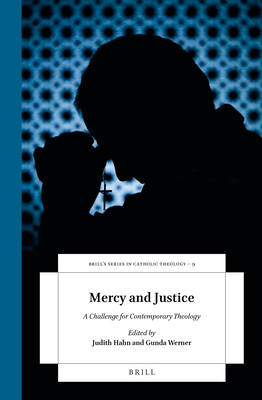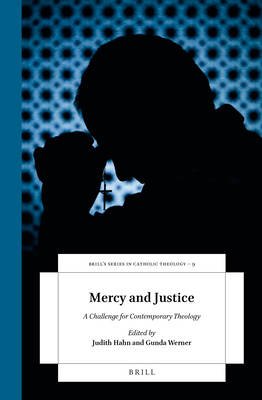
- Afhalen na 1 uur in een winkel met voorraad
- Gratis thuislevering in België vanaf € 30
- Ruim aanbod met 7 miljoen producten
- Afhalen na 1 uur in een winkel met voorraad
- Gratis thuislevering in België vanaf € 30
- Ruim aanbod met 7 miljoen producten
Zoeken
Mercy and Justice
A Challenge for Contemporary Theology
€ 198,45
+ 396 punten
Omschrijving
The term mercy is currently omnipresent in Catholic debates. It dominates at events such as the recent Family Synods and the Jubilee Years. At the same time, it poses a significant problem for cases dealing with sexual abuse. Mercy calls to consider an individual's needs and this conflicts with justice necessitating equal treatment for everyone. Mercy applies to the fallible individual deserving of punishment, but who is saved by grace. This is most apparent in the Sacrament of Penance and other forms of penitence, forgiveness, and reconciliation where mercy both transcends and undermines justice. This problem, widely ignored in church teaching, is addressed by Dirk Ansorge, James Dallen, Judith Hahn, Atria A. Larson, Sandra Lassak, Michael A. Nobel, Rosel Oehmen-Vieregge, Heike Springhart, and Gunda Werner.
Specificaties
Betrokkenen
- Uitgeverij:
Inhoud
- Aantal bladzijden:
- 208
- Taal:
- Engels
- Reeks:
- Reeksnummer:
- nr. 9
Eigenschappen
- Productcode (EAN):
- 9789004426856
- Verschijningsdatum:
- 18/06/2020
- Uitvoering:
- Hardcover
- Formaat:
- Genaaid
- Afmetingen:
- 155 mm x 235 mm
- Gewicht:
- 433 g

Alleen bij Standaard Boekhandel
+ 396 punten op je klantenkaart van Standaard Boekhandel
Beoordelingen
We publiceren alleen reviews die voldoen aan de voorwaarden voor reviews. Bekijk onze voorwaarden voor reviews.







